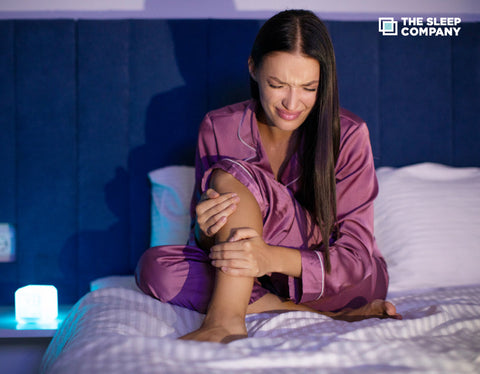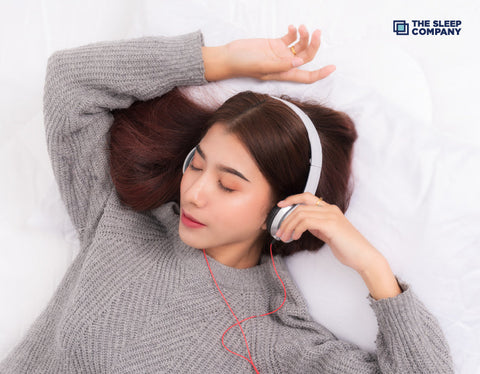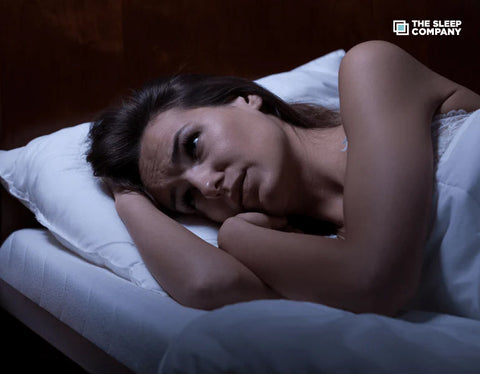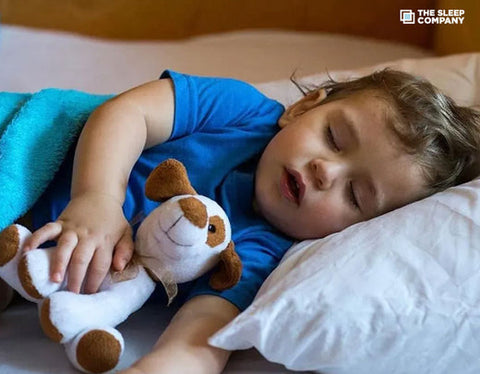My Cart
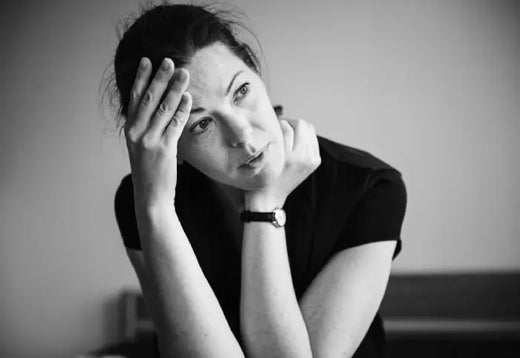
The Ultimate Guide to Sleep Anxiety Disorder
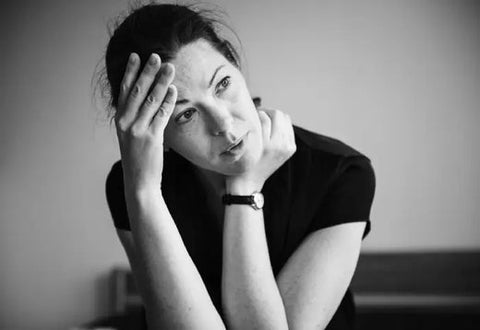
Most individuals are aware that anxieties and stress may keep them awake at night despite sleeping on the best mattress they purchased. But did you know that several people suffer from sleep anxiety or the fear of falling asleep? Sleep anxiety may keep you from getting enough rest and inflict damage on your health, perhaps contributing to more catastrophic health issues.
This article will talk about the sources and consequences of pre-sleep anxiety, as well as strategies for efficiently passing up your fear at last.
What is sleep anxiety?

In simple terms, sleep anxiety is being afraid of falling asleep or staying asleep. Another term for sleep anxiety is somniphobia. People with somniphobia or sleep anxiety usually believe that something terrible might happen to them while they sleep or that they should not sleep as they must be aware and vigilant.
Often Sleep anxiety has a relation with other anxieties, fears, and disorders directly or indirectly. Extreme stress and panic make it challenging to fall and remain asleep. Sleep problems can aggravate anxiousness, triggering a negative cycle combining insomnia and anxiety disorders.
What is a night-time anxiety attack?
A nocturnal panic attack, also known as a night-time anxiety attack, is a scary experience that awakens you from sleep. These are identical to anxiety attacks while you are awake, but they wake you up from a deep slumber. You wake up in a panic, experiencing bodily symptoms such as a rapid heartbeat, sweating, trembling, and trouble breathing or gasping for air. The episodes may not always be harmful to the body, but they may be frightening and make you feel out of your element.
What causes anxiety attacks at night?

Night-time is one of the most prevalent times for people to suffer anxiety. Several clinical studies have demonstrated sleep deprivation as a cause of anxiety. Generally, anxiety problems have been linked to poor sleep quality, according to a study.
While most daily and seasonal panic episodes have apparent causes, you may not comprehend the reason you are enduring an anxiety attack during sleep. A panic episode while sleeping can be induced by a number of circumstances, including:
- Anxiety and depression are examples of mental health conditions that may be present.
- A history of night-time panic attacks or anxiety attacks in the family
- An unfortunate tragedy, such as the loss of a loved one
- Hormonal imbalances in the brain
- An extremely traumatic life event
- Any of the above factors, or a mixture of more than one, might induce an anxiety attack in the midst of the night.
What are the symptoms of sleep anxiety?

Signs of panic attack while sleeping differ from person to person, but the unifying factor is getting anxious at night when you are about to lay down on the mattress. In general, sleep anxiety produces the same symptoms as daytime episodes. These symptoms may occur before or during the night or when you expect to sleep:
- A sense of being suffocated or being strangled
- Breathing difficulties
- Feelings of bewilderment and despair
- Feeling dizzy, lightheaded, or fainting
- Heart palpitations or a rapid pulse, Chest aches
- Gastrointestinal pain, Vomiting
- Prickling, Numbness
- Shaking and trembling
- Chills or hot flushes, Sweating
- The fear of impending disaster or dying
When you sleep, your mind is preoccupied with limited activity, making it simple for worrying thoughts to enter your head. Poor sleepers are more prone to have unpleasant thoughts and stay up far longer than those who sleep well.
Who gets sleep anxiety?

Adults, teenagers, and toddlers, anyone can suffer from sleep anxiety. You may be more exposed to sleep anxiety if you have sleep issues, such as:
- Insomnia
- Sleep apnea
- RLS or Restless leg syndrome
- Narcolepsy
- Sleepwalking.
People with mental illnesses, such as:
- Anxiety issues
- Depression
- Addiction to drugs or drinking
- Panic attacks.
- Personality disorder
- Bipolar disease
- PTSD or Post-traumatic stress disorder
How common is sleep anxiety?
Sleep anxiety is very common in people, especially among the working class. According to research, the majority of people who struggle with mental diseases such as anxiety also suffer from sleep disturbance.
How is sleep anxiety diagnosed?
If you suspect you have a sleep anxiety condition, you must consult a psychiatric health expert first. They can offer an appropriate analysis and guide you through the healing process. Phobias are often identified when fear and anxiety cause misery and problems in daily living.
You may have somniphobia or sleep anxiety if you are afraid of sleeping:
- influences sleep quality
- has a detrimental impact on physical or mental health
- triggers prolonged anxiety and sleep-related difficulties
- creates difficulties at your job, school, or in your personal life for longer than months
- forces you to avoid or postpone sleep as much as possible
Your healthcare professional will do a physical examination, analyze your clinical record, and assess your symptoms. They could ask you things like:
- What do you eat or drink at night?
- Is your anxiety always worse before going to bed?
- How long do you take to fall asleep?
- How frequently do you get up in the middle of the night?
- What do you do before going to bed?
What tests can help confirm a sleep anxiety diagnosis?

Health professionals may request that you participate in a sleep study or polysomnography, which requires you to spend the night in a sleep lab. Health professionals assess how your physique performs while you sleep by examining your:
- Breathing, Heartbeat patterns, and rates.
- Stages of sleep.
- Snoring
- Movements of the eyes and legs.
- Oxygen levels in the blood
- Alignment of the body
- Your brain’s electrical activity.
What can I do to prevent sleep anxiety?
Not all phobias need therapy. In certain circumstances, avoiding the item you are afraid of is relatively simple. Sleep deprivation, on the other hand, can have significant physical and mental health implications. Buy mattress online or avoiding naps throughout the day aren’t the only ways to avoid night-time anxiety attacks. More is required. As a result, therapy is often prescribed for any disease that prevents you from receiving enough rest.
Some of the therapeutic ideas they could provide include the following two essential points:
Cognitive behavioural treatment (CBT)
Cognitive behavioural therapy will help you understand the reasons why you can’t sleep and make modifications to your routine or behaviour to improve your sleeping patterns, hopefully. According to the study, there are a variety of CBT strategies, and your counsellor can devise the ideal strategy for you.
Exposure therapy
Exposure therapy helps you tackle your anxiety with the aid of your therapist. You will confront the issue head-on. According to the experts, this may entail picturing sleeping and gradually progress to taking small naps until you can manage a decent night’s sleep.
Aside from these therapies, implementing healthy sleep habits and using prescription medicines might help alleviate sleep anxiety.
How can healthy sleep habits treat sleep anxiety?

Sleep habits are your regular pre-bed practices that might impact your sleep. Some typical techniques to enhance your quality of sleep are as follows:
- Avoid consuming a lot of fluids and heavy meals before going to bed. Include relaxing activities such as meditation or listening to gentle, pleasant music in your pre-bed routine.
- Avoid energy boosters, especially alcohol and caffeine, before bedtime.
- Avoid going to bed unless you’re completely exhausted.
- Fix a sleep-wake time and follow it every day
- Leave your mattress if you still haven’t fallen asleep after twenty minutes.
- Make your bedroom cozy, tranquil, and well-lit.
- Buy mattress online along with appropriate bedding accessories
- Use the mattress or bed only for sleeping and sex.
- Get at least eight to nine hours of sleep each night.
- Stop using gadgets for at least 60 minutes before retiring to bed.
How can medication treat sleep anxiety?
While there is no prescription that precisely cures particular phobias, several medicines can lower fear and anxiety symptoms and could be beneficial when taken in along with therapy.
Your doctor may prescribe medication to manage anxiety or other mental health issues. Medication can also assist with the symptoms of sleep disorders such as sleep apnea and sleeplessness.
Final Thoughts:
A sleep anxiety disorder may prohibit you from getting the relaxation your body deserves. If you have a sleep anxiety problem, then you may suffer physical and mental health problems.
Consult your doctor if you suspect you have sleep anxiety or somniphobia. They can recommend you to a mental health specialist who is trained in identifying and resolving anxieties.


























